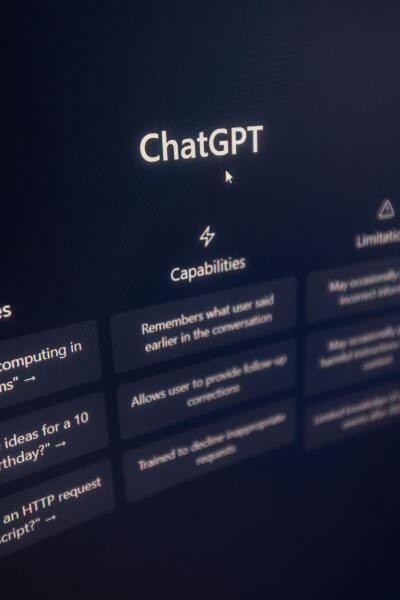Ten years ago, a mention of artificial intelligence might bring up images of “Star Wars,” “Terminator,” or “2001: A Space Odyssey.” All science fiction. Today when artificial intelligence enters the discussion it leans less into sci-fi and fantasy, and more into the future of job security, and creative work.
Artificial intelligence is a hot topic. Discussions around its ability to mimic creative works and influence the job market are becoming more common and serious. College students preparing to enter the job market are at the forefront of this new development. Some use it to edit their essays, others to generate research results and some may use it to write their papers for them. The capabilities of artificial intelligence are only getting better, and what it produces is becoming harder to distinguish from actual human work.
“I think the standard of quality rises … now you have to be very purposeful with what you’re creating … because AI can’t do that, yet,” said Chris Brock, a visual communication emphasis student at BYU-Idaho.
AI is creating a landscape where you can’t afford to be behind or average with creative tools. What took two years worth of classes to learn might become a skill soon accomplished by AI with one text prompt and some fine-tuning.
Video was something that seemed too complicated for AI to achieve a few years ago. People were still trying to figure out how to create believable still images with it. Then, that perspective changed with news reports about Sora, an AI that can create videos with a prompt.
Christian Mawlam is a Communication Department faculty member at BYU-Idaho with experience in the professional video production industry. He owned and operated his own business called 90 Second Story.
“I’ll be the first to admit that there are certain things which are impressive … but its accuracy leaves a lot to be desired … it still needs a living organic breathing human to assess the quality of it,” Mawlam said. “Even for creative endeavors there’s a lot of stuff which is a little bit boring to do … if you are able to automate that … that’s great because that's just an enhancement of the tools for the creative process.”
It sounds nice. The bright side of AI is that it will take away some tedious tasks across multiple industries, but the loss of those tasks could cost real jobs. Not by AI taking them away, but by simplifying them and potentially lowering the wages of the people working.
Pew Research did a study that asked Americans how they felt about AI over the last three years. In the article ‘What the data says about Americans’ views of artificial intelligence’ by Michelle Faverio and Alec Tyson, what was discovered is that from 2021-2023 over half of Americans surveyed have become more concerned than excited by the future AI presents, and who has more at stake in the future than young college students just about ready to enter this evolving workspace?
https://www.cnn.com/videos/business/2024/02/19/video-from-text-openai-tool-cnntm-vpx.cnn
